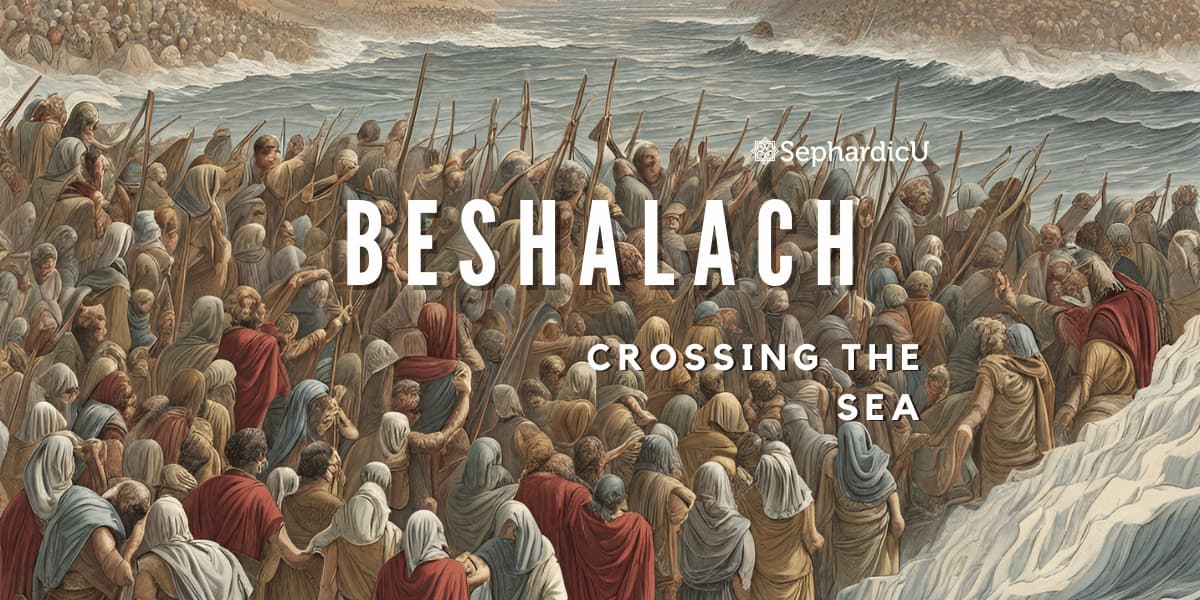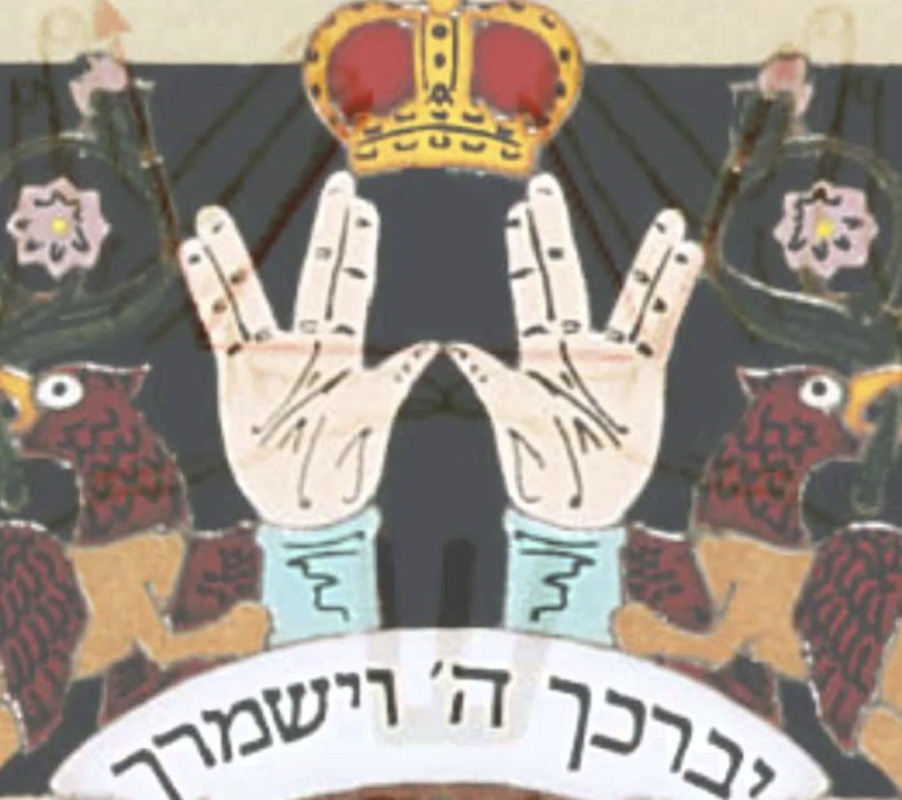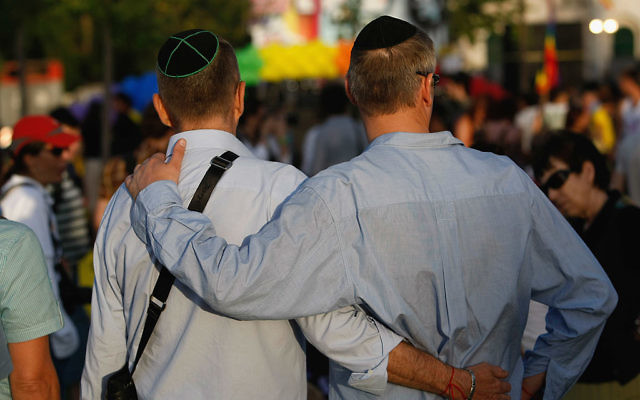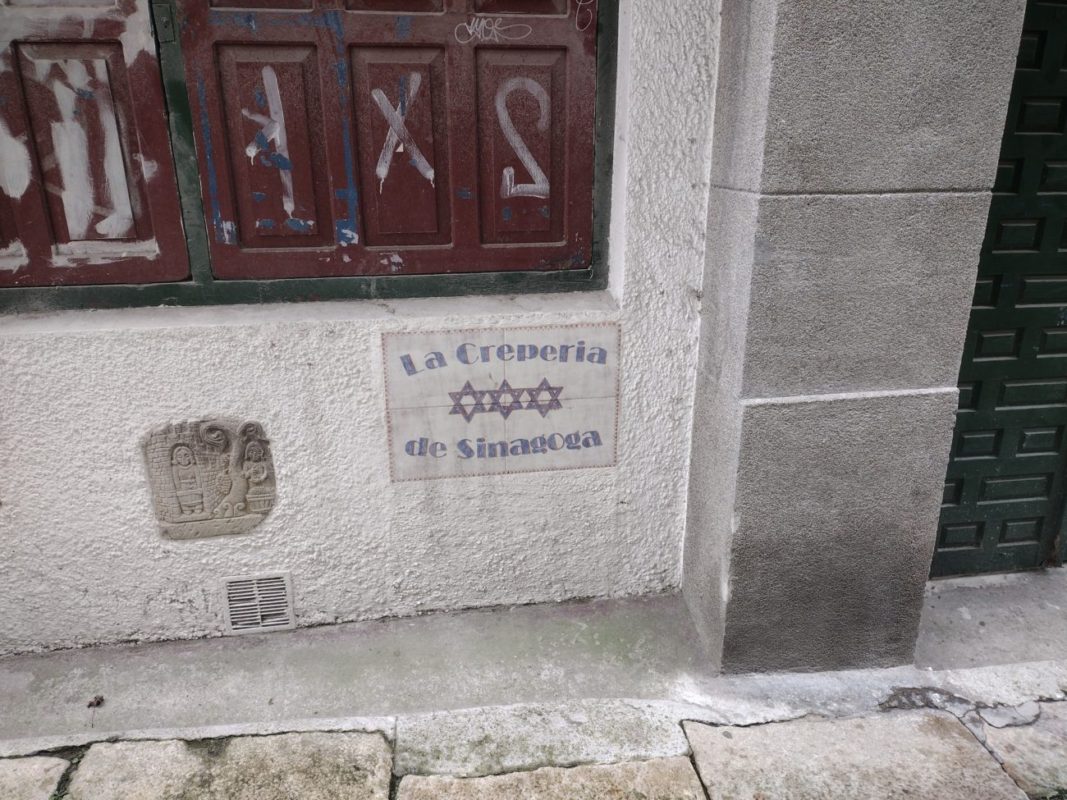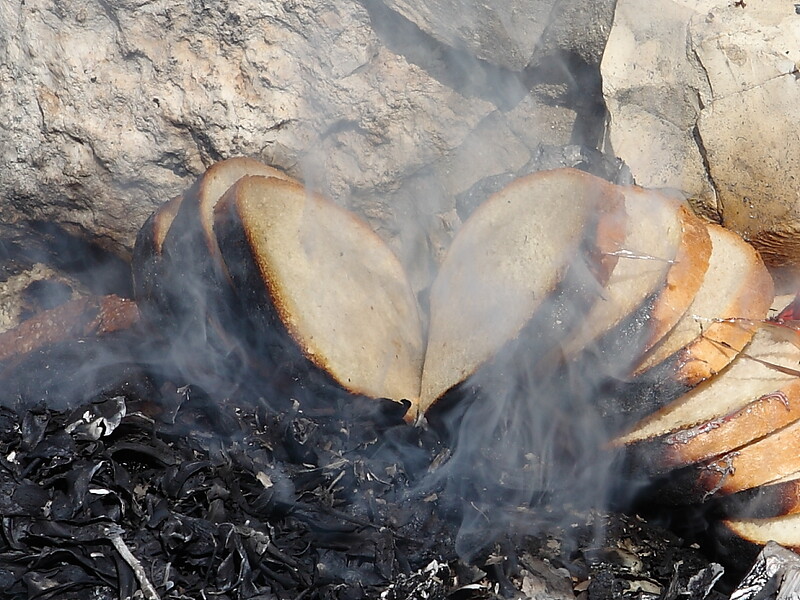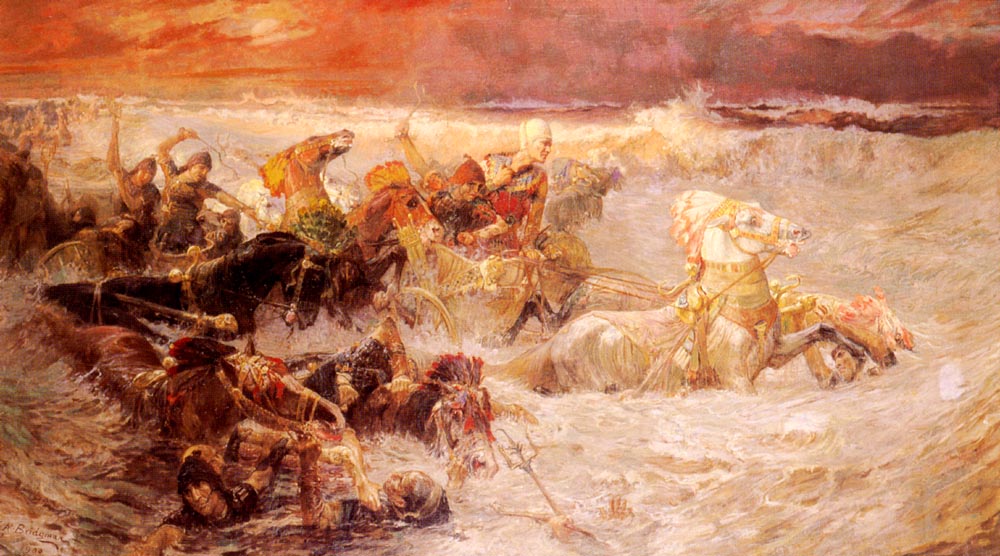Parashat Beshalach is the sixteenth weekly Torah portion in the Book of Exodus (Shemot). The name “Beshalach” means “When He Sent” in Hebrew, encapsulating the narrative of the Israelites’ departure from Egypt and the miraculous crossing of the Red Sea. This parasha spans Exodus 13:17-17:16, portraying a pivotal moment in the journey towards liberation.
Key events and themes in Parashat Beshalach include:
The Crossing of the Red Sea: Beshalach narrates the awe-inspiring event where the Israelites, pursued by the Egyptian army, witness the miraculous parting of the Red Sea, allowing them to pass through on dry land.
The Song of the Sea: Following the crossing, Moses and the Israelites joyously sing the Song of the Sea, expressing gratitude and praise for their deliverance and God’s mighty acts.
Provision of Manna: In the wilderness, God provides the Israelites with manna, a heavenly sustenance, underscoring divine care and the importance of trust in God’s ongoing provision.
Bitter Water Made Sweet: God transforms bitter water into sweet water at Marah, illustrating the theme of divine intervention in sustaining the well-being of the Israelites.
Legacy and Significance: Parashat Beshalach establishes the crossing of the Red Sea and the Song of the Sea as central elements in Jewish tradition. It symbolizes God’s power in overcoming obstacles and serves as a powerful reminder of divine guidance and protection.
Relevance Today: The themes of divine deliverance, gratitude, and reliance on God’s guidance in times of adversity resonate with contemporary spiritual reflections, offering insights into faith and resilience.
This parasha, Beshalach, illuminates a transformative chapter in the Israelites’ journey, emphasizing the profound impact of divine intervention and the enduring legacy of gratitude and trust in the face of challenges.
| Fact | Description |
|---|---|
| Parasha Number | 16th Parasha in the Book of Exodus (Shemot) |
| Parasha Name | Beshalach (בְּשַׁלַּח) means “When He Sent” in Hebrew, highlighting the narrative of the Israelites’ departure from Egypt and the crossing of the Red Sea. |
| Torah Book | Exodus (Shemot) |
| Number of Verses | 117 verses |
| Number of Words | Approximately 3,558 words (in the Hebrew text) |
| Primary Characters | Moses, Aaron, Pharaoh, Israelites, and the pillar of cloud and fire are central figures. |
| Key Themes | The crossing of the Red Sea, God’s miraculous intervention, the Song of the Sea, and the provision of manna. |
| Significant Events | The crossing of the Red Sea, the Song of the Sea, the bitter water made sweet, and the provision of manna in the wilderness. |
| Notable Quotes | The Song of the Sea (Exodus 15) is a notable poetic expression of praise and thanksgiving. |
| Legacy | Parashat Beshalach marks the dramatic liberation of the Israelites and the establishment of the Song of the Sea as a central element in Jewish liturgy. |
| Relevance Today | The themes of divine deliverance, gratitude, and dependence on God remain relevant, offering insights into faith and trust in challenging times. |
| Well-Known Stories | The crossing of the Red Sea and the Song of the Sea are iconic stories symbolizing God’s deliverance and the triumph over oppression. |
| Special Observances | Parashat Beshalach is regularly read during synagogue services and holds significance in Jewish liturgical traditions. |
| Connections to Other Texts | Beshalach connects to subsequent events in the wilderness and sets the stage for the giving of the Torah at Mount Sinai. |
| Theological Significance | Parashat Beshalach emphasizes divine intervention, the importance of trust, and the celebration of God’s saving power. |
בשלח
וַיִּקַּ֥ח מֹשֶׁ֛ה אֶת־עַצְמ֥וֹת יוֹסֵ֖ף עִמּ֑וֹ כִּי֩ הַשְׁבֵּ֨עַ הִשְׁבִּ֜יעַ אֶת־בְּנֵ֤י יִשְׂרָאֵל֙ לֵאמֹ֔ר פָּקֹ֨ד יִפְקֹ֤ד אֱלֹהִים֙ אֶתְכֶ֔ם וְהַעֲלִיתֶ֧ם אֶת־עַצְמֹתַ֛י מִזֶּ֖ה אִתְּכֶֽם׃
וַיִּסְע֖וּ מִסֻּכֹּ֑ת וַיַּחֲנ֣וּ בְאֵתָ֔ם בִּקְצֵ֖ה הַמִּדְבָּֽר׃
וַֽיהֹוָ֡ה הֹלֵךְ֩ לִפְנֵיהֶ֨ם יוֹמָ֜ם בְּעַמּ֤וּד עָנָן֙ לַנְחֹתָ֣ם הַדֶּ֔רֶךְ וְלַ֛יְלָה בְּעַמּ֥וּד אֵ֖שׁ לְהָאִ֣יר לָהֶ֑ם לָלֶ֖כֶת יוֹמָ֥ם וָלָֽיְלָה׃
לֹֽא־יָמִ֞ישׁ עַמּ֤וּד הֶֽעָנָן֙ יוֹמָ֔ם וְעַמּ֥וּד הָאֵ֖שׁ לָ֑יְלָה לִפְנֵ֖י הָעָֽם׃ {פ} [לוי]
י״ד
וַיְדַבֵּ֥ר יְהֹוָ֖ה אֶל־מֹשֶׁ֥ה לֵּאמֹֽר׃
דַּבֵּר֮ אֶל־בְּנֵ֣י יִשְׂרָאֵל֒ וְיָשֻׁ֗בוּ וְיַחֲנוּ֙ לִפְנֵי֙ פִּ֣י הַחִירֹ֔ת בֵּ֥ין מִגְדֹּ֖ל וּבֵ֣ין הַיָּ֑ם לִפְנֵי֙ בַּ֣עַל צְפֹ֔ן נִכְח֥וֹ תַחֲנ֖וּ עַל־הַיָּֽם׃
וְאָמַ֤ר פַּרְעֹה֙ לִבְנֵ֣י יִשְׂרָאֵ֔ל נְבֻכִ֥ים הֵ֖ם בָּאָ֑רֶץ סָגַ֥ר עֲלֵיהֶ֖ם הַמִּדְבָּֽר׃
וְחִזַּקְתִּ֣י אֶת־לֵב־פַּרְעֹה֮ וְרָדַ֣ף אַחֲרֵיהֶם֒ וְאִכָּבְדָ֤ה בְּפַרְעֹה֙ וּבְכׇל־חֵיל֔וֹ וְיָדְע֥וּ מִצְרַ֖יִם כִּֽי־אֲנִ֣י יְהֹוָ֑ה וַיַּֽעֲשׂוּ־כֵֽן׃ [ישראל]
וַיֻּגַּד֙ לְמֶ֣לֶךְ מִצְרַ֔יִם כִּ֥י בָרַ֖ח הָעָ֑ם וַ֠יֵּהָפֵ֠ךְ לְבַ֨ב פַּרְעֹ֤ה וַעֲבָדָיו֙ אֶל־הָעָ֔ם וַיֹּֽאמְרוּ֙ מַה־זֹּ֣את עָשִׂ֔ינוּ כִּֽי־שִׁלַּ֥חְנוּ אֶת־יִשְׂרָאֵ֖ל מֵעׇבְדֵֽנוּ׃
וַיֶּאְסֹ֖ר אֶת־רִכְבּ֑וֹ וְאֶת־עַמּ֖וֹ לָקַ֥ח עִמּֽוֹ׃
וַיִּקַּ֗ח שֵׁשׁ־מֵא֥וֹת רֶ֙כֶב֙ בָּח֔וּר וְכֹ֖ל רֶ֣כֶב מִצְרָ֑יִם וְשָׁלִשִׁ֖ם עַל־כֻּלּֽוֹ׃
וַיְחַזֵּ֣ק יְהֹוָ֗ה אֶת־לֵ֤ב פַּרְעֹה֙ מֶ֣לֶךְ מִצְרַ֔יִם וַיִּרְדֹּ֕ף אַחֲרֵ֖י בְּנֵ֣י יִשְׂרָאֵ֑ל וּבְנֵ֣י יִשְׂרָאֵ֔ל יֹצְאִ֖ים בְּיָ֥ד רָמָֽה׃ [|]
שני
וַיִּרְדְּפ֨וּ מִצְרַ֜יִם אַחֲרֵיהֶ֗ם וַיַּשִּׂ֤יגוּ אוֹתָם֙ חֹנִ֣ים עַל־הַיָּ֔ם כׇּל־סוּס֙ רֶ֣כֶב פַּרְעֹ֔ה וּפָרָשָׁ֖יו וְחֵיל֑וֹ עַל־פִּי֙ הַֽחִירֹ֔ת לִפְנֵ֖י בַּ֥עַל צְפֹֽן׃
וּפַרְעֹ֖ה הִקְרִ֑יב וַיִּשְׂאוּ֩ בְנֵֽי־יִשְׂרָאֵ֨ל אֶת־עֵינֵיהֶ֜ם וְהִנֵּ֥ה מִצְרַ֣יִם ׀ נֹסֵ֣עַ אַחֲרֵיהֶ֗ם וַיִּֽירְאוּ֙ מְאֹ֔ד וַיִּצְעֲק֥וּ בְנֵֽי־יִשְׂרָאֵ֖ל אֶל־יְהֹוָֽה׃
וַיֹּאמְרוּ֮ אֶל־מֹשֶׁה֒ הֲֽמִבְּלִ֤י אֵין־קְבָרִים֙ בְּמִצְרַ֔יִם לְקַחְתָּ֖נוּ לָמ֣וּת בַּמִּדְבָּ֑ר מַה־זֹּאת֙ עָשִׂ֣יתָ לָּ֔נוּ לְהוֹצִיאָ֖נוּ מִמִּצְרָֽיִם׃
הֲלֹא־זֶ֣ה הַדָּבָ֗ר אֲשֶׁר֩ דִּבַּ֨רְנוּ אֵלֶ֤יךָ בְמִצְרַ֙יִם֙ לֵאמֹ֔ר חֲדַ֥ל מִמֶּ֖נּוּ וְנַֽעַבְדָ֣ה אֶת־מִצְרָ֑יִם כִּ֣י ט֥וֹב לָ֙נוּ֙ עֲבֹ֣ד אֶת־מִצְרַ֔יִם מִמֻּתֵ֖נוּ בַּמִּדְבָּֽר׃
וַיֹּ֨אמֶר מֹשֶׁ֣ה אֶל־הָעָם֮ אַל־תִּירָ֒אוּ֒ הִֽתְיַצְּב֗וּ וּרְאוּ֙ אֶת־יְשׁוּעַ֣ת יְהֹוָ֔ה אֲשֶׁר־יַעֲשֶׂ֥ה לָכֶ֖ם הַיּ֑וֹם כִּ֗י אֲשֶׁ֨ר רְאִיתֶ֤ם אֶת־מִצְרַ֙יִם֙ הַיּ֔וֹם לֹ֥א תֹסִ֛פוּ לִרְאֹתָ֥ם ע֖וֹד עַד־עוֹלָֽם׃
יְהֹוָ֖ה יִלָּחֵ֣ם לָכֶ֑ם וְאַתֶּ֖ם תַּחֲרִשֽׁוּן׃ {פ}
שלישי
וַיֹּ֤אמֶר יְהֹוָה֙ אֶל־מֹשֶׁ֔ה מַה־תִּצְעַ֖ק אֵלָ֑י דַּבֵּ֥ר אֶל־בְּנֵי־יִשְׂרָאֵ֖ל וְיִסָּֽעוּ׃
וְאַתָּ֞ה הָרֵ֣ם אֶֽת־מַטְּךָ֗ וּנְטֵ֧ה אֶת־יָדְךָ֛ עַל־הַיָּ֖ם וּבְקָעֵ֑הוּ וְיָבֹ֧אוּ בְנֵֽי־יִשְׂרָאֵ֛ל בְּת֥וֹךְ הַיָּ֖ם בַּיַּבָּשָֽׁה׃
וַאֲנִ֗י הִנְנִ֤י מְחַזֵּק֙ אֶת־לֵ֣ב מִצְרַ֔יִם וְיָבֹ֖אוּ אַחֲרֵיהֶ֑ם וְאִכָּבְדָ֤ה בְּפַרְעֹה֙ וּבְכׇל־חֵיל֔וֹ בְּרִכְבּ֖וֹ וּבְפָרָשָֽׁיו׃
וְיָדְע֥וּ מִצְרַ֖יִם כִּי־אֲנִ֣י יְהֹוָ֑ה בְּהִכָּבְדִ֣י בְּפַרְעֹ֔ה בְּרִכְבּ֖וֹ וּבְפָרָשָֽׁיו׃
וַיִּסַּ֞ע מַלְאַ֣ךְ הָאֱלֹהִ֗ים הַהֹלֵךְ֙ לִפְנֵי֙ מַחֲנֵ֣ה יִשְׂרָאֵ֔ל וַיֵּ֖לֶךְ מֵאַחֲרֵיהֶ֑ם וַיִּסַּ֞ע עַמּ֤וּד הֶֽעָנָן֙ מִפְּנֵיהֶ֔ם וַיַּֽעֲמֹ֖ד מֵאַחֲרֵיהֶֽם׃
וַיָּבֹ֞א בֵּ֣ין ׀ מַחֲנֵ֣ה מִצְרַ֗יִם וּבֵין֙ מַחֲנֵ֣ה יִשְׂרָאֵ֔ל וַיְהִ֤י הֶֽעָנָן֙ וְהַחֹ֔שֶׁךְ וַיָּ֖אֶר אֶת־הַלָּ֑יְלָה וְלֹא־קָרַ֥ב זֶ֛ה אֶל־זֶ֖ה כׇּל־הַלָּֽיְלָה׃
וַיֵּ֨ט מֹשֶׁ֣ה אֶת־יָדוֹ֮ עַל־הַיָּם֒ וַיּ֣וֹלֶךְ יְהֹוָ֣ה ׀ אֶת־הַ֠יָּ֠ם בְּר֨וּחַ קָדִ֤ים עַזָּה֙ כׇּל־הַלַּ֔יְלָה וַיָּ֥שֶׂם אֶת־הַיָּ֖ם לֶחָרָבָ֑ה וַיִּבָּקְע֖וּ הַמָּֽיִם׃
וַיָּבֹ֧אוּ בְנֵֽי־יִשְׂרָאֵ֛ל בְּת֥וֹךְ הַיָּ֖ם בַּיַּבָּשָׁ֑ה וְהַמַּ֤יִם לָהֶם֙ חוֹמָ֔ה מִֽימִינָ֖ם וּמִשְּׂמֹאלָֽם׃
וַיִּרְדְּפ֤וּ מִצְרַ֙יִם֙ וַיָּבֹ֣אוּ אַחֲרֵיהֶ֔ם כֹּ֚ל ס֣וּס פַּרְעֹ֔ה רִכְבּ֖וֹ וּפָרָשָׁ֑יו אֶל־תּ֖וֹךְ הַיָּֽם׃
וַֽיְהִי֙ בְּאַשְׁמֹ֣רֶת הַבֹּ֔קֶר וַיַּשְׁקֵ֤ף יְהֹוָה֙ אֶל־מַחֲנֵ֣ה מִצְרַ֔יִם בְּעַמּ֥וּד אֵ֖שׁ וְעָנָ֑ן וַיָּ֕הׇם אֵ֖ת מַחֲנֵ֥ה מִצְרָֽיִם׃
וַיָּ֗סַר אֵ֚ת אֹפַ֣ן מַרְכְּבֹתָ֔יו וַֽיְנַהֲגֵ֖הוּ בִּכְבֵדֻ֑ת וַיֹּ֣אמֶר מִצְרַ֗יִם אָנ֙וּסָה֙ מִפְּנֵ֣י יִשְׂרָאֵ֔ל כִּ֣י יְהֹוָ֔ה נִלְחָ֥ם לָהֶ֖ם בְּמִצְרָֽיִם׃ {פ}
רביעי
וַיֹּ֤אמֶר יְהֹוָה֙ אֶל־מֹשֶׁ֔ה נְטֵ֥ה אֶת־יָדְךָ֖ עַל־הַיָּ֑ם וְיָשֻׁ֤בוּ הַמַּ֙יִם֙ עַל־מִצְרַ֔יִם עַל־רִכְבּ֖וֹ וְעַל־פָּרָשָֽׁיו׃
וַיֵּט֩ מֹשֶׁ֨ה אֶת־יָד֜וֹ עַל־הַיָּ֗ם וַיָּ֨שׇׁב הַיָּ֜ם לִפְנ֥וֹת בֹּ֙קֶר֙ לְאֵ֣יתָנ֔וֹ וּמִצְרַ֖יִם נָסִ֣ים לִקְרָאת֑וֹ וַיְנַעֵ֧ר יְהֹוָ֛ה אֶת־מִצְרַ֖יִם בְּת֥וֹךְ הַיָּֽם׃
וַיָּשֻׁ֣בוּ הַמַּ֗יִם וַיְכַסּ֤וּ אֶת־הָרֶ֙כֶב֙ וְאֶת־הַפָּ֣רָשִׁ֔ים לְכֹל֙ חֵ֣יל פַּרְעֹ֔ה הַבָּאִ֥ים אַחֲרֵיהֶ֖ם בַּיָּ֑ם לֹֽא־נִשְׁאַ֥ר בָּהֶ֖ם עַד־אֶחָֽד׃
וּבְנֵ֧י יִשְׂרָאֵ֛ל הָלְכ֥וּ בַיַּבָּשָׁ֖ה בְּת֣וֹךְ הַיָּ֑ם וְהַמַּ֤יִם לָהֶם֙ חֹמָ֔ה מִֽימִינָ֖ם וּמִשְּׂמֹאלָֽם׃
וַיּ֨וֹשַׁע יְהֹוָ֜ה בַּיּ֥וֹם הַה֛וּא אֶת־יִשְׂרָאֵ֖ל מִיַּ֣ד מִצְרָ֑יִם וַיַּ֤רְא יִשְׂרָאֵל֙ אֶת־מִצְרַ֔יִם מֵ֖ת עַל־שְׂפַ֥ת הַיָּֽם׃
וַיַּ֨רְא יִשְׂרָאֵ֜ל אֶת־הַיָּ֣ד הַגְּדֹלָ֗ה אֲשֶׁ֨ר עָשָׂ֤ה יְהֹוָה֙ בְּמִצְרַ֔יִם וַיִּֽירְא֥וּ הָעָ֖ם אֶת־יְהֹוָ֑ה וַיַּֽאֲמִ֙ינוּ֙ בַּֽיהֹוָ֔ה וּבְמֹשֶׁ֖ה עַבְדּֽוֹ׃ {פ}
ט״ו
אָ֣ז יָשִֽׁיר־מֹשֶׁה֩ וּבְנֵ֨י יִשְׂרָאֵ֜ל אֶת־הַשִּׁירָ֤ה הַזֹּאת֙ לַֽיהֹוָ֔ה וַיֹּאמְר֖וּ לֵאמֹ֑ר אָשִׁ֤ירָה לַֽיהֹוָה֙ כִּֽי־גָאֹ֣ה גָּאָ֔ה ס֥וּס וְרֹכְב֖וֹ רָמָ֥ה בַיָּֽם׃
עׇזִּ֤י וְזִמְרָת֙ יָ֔הּ וַֽיְהִי־לִ֖י לִֽישׁוּעָ֑ה זֶ֤ה אֵלִי֙ וְאַנְוֵ֔הוּ אֱלֹהֵ֥י אָבִ֖י וַאֲרֹמְמֶֽנְהוּ׃
יְהֹוָ֖ה אִ֣ישׁ מִלְחָמָ֑ה יְהֹוָ֖ה שְׁמֽוֹ׃
מַרְכְּבֹ֥ת פַּרְעֹ֛ה וְחֵיל֖וֹ יָרָ֣ה בַיָּ֑ם וּמִבְחַ֥ר שָֽׁלִשָׁ֖יו טֻבְּע֥וּ בְיַם־סֽוּף׃
תְּהֹמֹ֖ת יְכַסְיֻ֑מוּ יָרְד֥וּ בִמְצוֹלֹ֖ת כְּמוֹ־אָֽבֶן׃
יְמִֽינְךָ֣ יְהֹוָ֔ה נֶאְדָּרִ֖י בַּכֹּ֑חַ יְמִֽינְךָ֥ יְהֹוָ֖ה תִּרְעַ֥ץ אוֹיֵֽב׃
וּבְרֹ֥ב גְּאוֹנְךָ֖ תַּהֲרֹ֣ס קָמֶ֑יךָ תְּשַׁלַּח֙ חֲרֹ֣נְךָ֔ יֹאכְלֵ֖מוֹ כַּקַּֽשׁ׃
וּבְר֤וּחַ אַפֶּ֙יךָ֙ נֶ֣עֶרְמוּ מַ֔יִם נִצְּב֥וּ כְמוֹ־נֵ֖ד נֹזְלִ֑ים קָֽפְא֥וּ תְהֹמֹ֖ת בְּלֶב־יָֽם׃
אָמַ֥ר אוֹיֵ֛ב אֶרְדֹּ֥ף אַשִּׂ֖יג אֲחַלֵּ֣ק שָׁלָ֑ל תִּמְלָאֵ֣מוֹ נַפְשִׁ֔י אָרִ֣יק חַרְבִּ֔י תּוֹרִישֵׁ֖מוֹ יָדִֽי׃
נָשַׁ֥פְתָּ בְרוּחֲךָ֖ כִּסָּ֣מוֹ יָ֑ם צָֽלְלוּ֙ כַּֽעוֹפֶ֔רֶת בְּמַ֖יִם אַדִּירִֽים׃
מִֽי־כָמֹ֤כָה בָּֽאֵלִם֙ יְהֹוָ֔ה מִ֥י כָּמֹ֖כָה נֶאְדָּ֣ר בַּקֹּ֑דֶשׁ נוֹרָ֥א תְהִלֹּ֖ת עֹ֥שֵׂה פֶֽלֶא׃
נָטִ֙יתָ֙ יְמִ֣ינְךָ֔ תִּבְלָעֵ֖מוֹ אָֽרֶץ׃
נָחִ֥יתָ בְחַסְדְּךָ֖ עַם־ז֣וּ גָּאָ֑לְתָּ נֵהַ֥לְתָּ בְעׇזְּךָ֖ אֶל־נְוֵ֥ה קׇדְשֶֽׁךָ׃
שָֽׁמְע֥וּ עַמִּ֖ים יִרְגָּז֑וּן חִ֣יל אָחַ֔ז יֹשְׁבֵ֖י פְּלָֽשֶׁת׃
אָ֤ז נִבְהֲלוּ֙ אַלּוּפֵ֣י אֱד֔וֹם אֵילֵ֣י מוֹאָ֔ב יֹֽאחֲזֵ֖מוֹ רָ֑עַד נָמֹ֕גוּ כֹּ֖ל יֹשְׁבֵ֥י כְנָֽעַן׃
תִּפֹּ֨ל עֲלֵיהֶ֤ם אֵימָ֙תָה֙ וָפַ֔חַד בִּגְדֹ֥ל זְרוֹעֲךָ֖ יִדְּמ֣וּ כָּאָ֑בֶן עַד־יַעֲבֹ֤ר עַמְּךָ֙ יְהֹוָ֔ה עַֽד־יַעֲבֹ֖ר עַם־ז֥וּ קָנִֽיתָ׃
תְּבִאֵ֗מוֹ וְתִטָּעֵ֙מוֹ֙ בְּהַ֣ר נַחֲלָֽתְךָ֔ מָכ֧וֹן לְשִׁבְתְּךָ֛ פָּעַ֖לְתָּ יְהֹוָ֑ה מִקְּדָ֕שׁ אֲדֹנָ֖י כּוֹנְנ֥וּ יָדֶֽיךָ׃
יְהֹוָ֥ה ׀ יִמְלֹ֖ךְ לְעֹלָ֥ם וָעֶֽד׃
כִּ֣י בָא֩ ס֨וּס פַּרְעֹ֜ה בְּרִכְבּ֤וֹ וּבְפָרָשָׁיו֙ בַּיָּ֔ם וַיָּ֧שֶׁב יְהֹוָ֛ה עֲלֵהֶ֖ם אֶת־מֵ֣י הַיָּ֑ם וּבְנֵ֧י יִשְׂרָאֵ֛ל הָלְכ֥וּ בַיַּבָּשָׁ֖ה בְּת֥וֹךְ הַיָּֽם׃ {פ}
וַתִּקַּח֩ מִרְיָ֨ם הַנְּבִיאָ֜ה אֲח֧וֹת אַהֲרֹ֛ן אֶת־הַתֹּ֖ף בְּיָדָ֑הּ וַתֵּצֶ֤אןָ כׇֽל־הַנָּשִׁים֙ אַחֲרֶ֔יהָ בְּתֻפִּ֖ים וּבִמְחֹלֹֽת׃
וַתַּ֥עַן לָהֶ֖ם מִרְיָ֑ם שִׁ֤ירוּ לַֽיהֹוָה֙ כִּֽי־גָאֹ֣ה גָּאָ֔ה ס֥וּס וְרֹכְב֖וֹ רָמָ֥ה בַיָּֽם׃ {ס}
וַיַּסַּ֨ע מֹשֶׁ֤ה אֶת־יִשְׂרָאֵל֙ מִיַּם־ס֔וּף וַיֵּצְא֖וּ אֶל־מִדְבַּר־שׁ֑וּר וַיֵּלְכ֧וּ שְׁלֹֽשֶׁת־יָמִ֛ים בַּמִּדְבָּ֖ר וְלֹא־מָ֥צְאוּ מָֽיִם׃
וַיָּבֹ֣אוּ מָרָ֔תָה וְלֹ֣א יָֽכְל֗וּ לִשְׁתֹּ֥ת מַ֙יִם֙ מִמָּרָ֔ה כִּ֥י מָרִ֖ים הֵ֑ם עַל־כֵּ֥ן קָרָֽא־שְׁמָ֖הּ מָרָֽה׃
וַיִּלֹּ֧נוּ הָעָ֛ם עַל־מֹשֶׁ֥ה לֵּאמֹ֖ר מַה־נִּשְׁתֶּֽה׃
וַיִּצְעַ֣ק אֶל־יְהֹוָ֗ה וַיּוֹרֵ֤הוּ יְהֹוָה֙ עֵ֔ץ וַיַּשְׁלֵךְ֙ אֶל־הַמַּ֔יִם וַֽיִּמְתְּק֖וּ הַמָּ֑יִם שָׁ֣ם שָׂ֥ם ל֛וֹ חֹ֥ק וּמִשְׁפָּ֖ט וְשָׁ֥ם נִסָּֽהוּ׃
וַיֹּ֩אמֶר֩ אִם־שָׁמ֨וֹעַ תִּשְׁמַ֜ע לְק֣וֹל ׀ יְהֹוָ֣ה אֱלֹהֶ֗יךָ וְהַיָּשָׁ֤ר בְּעֵינָיו֙ תַּעֲשֶׂ֔ה וְהַֽאֲזַנְתָּ֙ לְמִצְוֺתָ֔יו וְשָׁמַרְתָּ֖ כׇּל־חֻקָּ֑יו כׇּֽל־הַמַּחֲלָ֞ה אֲשֶׁר־שַׂ֤מְתִּי בְמִצְרַ֙יִם֙ לֹא־אָשִׂ֣ים עָלֶ֔יךָ כִּ֛י אֲנִ֥י יְהֹוָ֖ה רֹפְאֶֽךָ׃ {ס}
חמישי
וַיָּבֹ֣אוּ אֵילִ֔מָה וְשָׁ֗ם שְׁתֵּ֥ים עֶשְׂרֵ֛ה עֵינֹ֥ת מַ֖יִם וְשִׁבְעִ֣ים תְּמָרִ֑ים וַיַּחֲנוּ־שָׁ֖ם עַל־הַמָּֽיִם׃
ט״ז
וַיִּסְעוּ֙ מֵֽאֵילִ֔ם וַיָּבֹ֜אוּ כׇּל־עֲדַ֤ת בְּנֵֽי־יִשְׂרָאֵל֙ אֶל־מִדְבַּר־סִ֔ין אֲשֶׁ֥ר בֵּין־אֵילִ֖ם וּבֵ֣ין סִינָ֑י בַּחֲמִשָּׁ֨ה עָשָׂ֥ר יוֹם֙ לַחֹ֣דֶשׁ הַשֵּׁנִ֔י לְצֵאתָ֖ם מֵאֶ֥רֶץ מִצְרָֽיִם׃
(וילינו) [וַיִּלּ֜וֹנוּ] כׇּל־עֲדַ֧ת בְּנֵי־יִשְׂרָאֵ֛ל עַל־מֹשֶׁ֥ה וְעַֽל־אַהֲרֹ֖ן בַּמִּדְבָּֽר׃
וַיֹּאמְר֨וּ אֲלֵהֶ֜ם בְּנֵ֣י יִשְׂרָאֵ֗ל מִֽי־יִתֵּ֨ן מוּתֵ֤נוּ בְיַד־יְהֹוָה֙ בְּאֶ֣רֶץ מִצְרַ֔יִם בְּשִׁבְתֵּ֙נוּ֙ עַל־סִ֣יר הַבָּשָׂ֔ר בְּאׇכְלֵ֥נוּ לֶ֖חֶם לָשֹׂ֑בַע כִּֽי־הוֹצֵאתֶ֤ם אֹתָ֙נוּ֙ אֶל־הַמִּדְבָּ֣ר הַזֶּ֔ה לְהָמִ֛ית אֶת־כׇּל־הַקָּהָ֥ל הַזֶּ֖ה בָּרָעָֽב׃ {ס}
וַיֹּ֤אמֶר יְהֹוָה֙ אֶל־מֹשֶׁ֔ה הִנְנִ֨י מַמְטִ֥יר לָכֶ֛ם לֶ֖חֶם מִן־הַשָּׁמָ֑יִם וְיָצָ֨א הָעָ֤ם וְלָֽקְטוּ֙ דְּבַר־י֣וֹם בְּיוֹמ֔וֹ לְמַ֧עַן אֲנַסֶּ֛נּוּ הֲיֵלֵ֥ךְ בְּתוֹרָתִ֖י אִם־לֹֽא׃
וְהָיָה֙ בַּיּ֣וֹם הַשִּׁשִּׁ֔י וְהֵכִ֖ינוּ אֵ֣ת אֲשֶׁר־יָבִ֑יאוּ וְהָיָ֣ה מִשְׁנֶ֔ה עַ֥ל אֲשֶֽׁר־יִלְקְט֖וּ י֥וֹם ׀ יֽוֹם׃
וַיֹּ֤אמֶר מֹשֶׁה֙ וְאַהֲרֹ֔ן אֶֽל־כׇּל־בְּנֵ֖י יִשְׂרָאֵ֑ל עֶ֕רֶב וִֽידַעְתֶּ֕ם כִּ֧י יְהֹוָ֛ה הוֹצִ֥יא אֶתְכֶ֖ם מֵאֶ֥רֶץ מִצְרָֽיִם׃
וּבֹ֗קֶר וּרְאִיתֶם֙ אֶת־כְּב֣וֹד יְהֹוָ֔ה בְּשׇׁמְע֥וֹ אֶת־תְּלֻנֹּתֵיכֶ֖ם עַל־יְהֹוָ֑ה וְנַ֣חְנוּ מָ֔ה כִּ֥י (תלונו) [תַלִּ֖ינוּ] עָלֵֽינוּ׃
וַיֹּ֣אמֶר מֹשֶׁ֗ה בְּתֵ֣ת יְהֹוָה֩ לָכֶ֨ם בָּעֶ֜רֶב בָּשָׂ֣ר לֶאֱכֹ֗ל וְלֶ֤חֶם בַּבֹּ֙קֶר֙ לִשְׂבֹּ֔עַ בִּשְׁמֹ֤עַ יְהֹוָה֙ אֶת־תְּלֻנֹּ֣תֵיכֶ֔ם אֲשֶׁר־אַתֶּ֥ם מַלִּינִ֖ם עָלָ֑יו וְנַ֣חְנוּ מָ֔ה לֹא־עָלֵ֥ינוּ תְלֻנֹּתֵיכֶ֖ם כִּ֥י עַל־יְהֹוָֽה׃
וַיֹּ֤אמֶר מֹשֶׁה֙ אֶֽל־אַהֲרֹ֔ן אֱמֹ֗ר אֶֽל־כׇּל־עֲדַת֙ בְּנֵ֣י יִשְׂרָאֵ֔ל קִרְב֖וּ לִפְנֵ֣י יְהֹוָ֑ה כִּ֣י שָׁמַ֔ע אֵ֖ת תְּלֻנֹּתֵיכֶֽם׃
וַיְהִ֗י כְּדַבֵּ֤ר אַהֲרֹן֙ אֶל־כׇּל־עֲדַ֣ת בְּנֵֽי־יִשְׂרָאֵ֔ל וַיִּפְנ֖וּ אֶל־הַמִּדְבָּ֑ר וְהִנֵּה֙ כְּב֣וֹד יְהֹוָ֔ה נִרְאָ֖ה בֶּעָנָֽן׃ {פ}
שישי
וַיְדַבֵּ֥ר יְהֹוָ֖ה אֶל־מֹשֶׁ֥ה לֵּאמֹֽר׃
שָׁמַ֗עְתִּי אֶת־תְּלוּנֹּת֮ בְּנֵ֣י יִשְׂרָאֵל֒ דַּבֵּ֨ר אֲלֵהֶ֜ם לֵאמֹ֗ר בֵּ֤ין הָֽעַרְבַּ֙יִם֙ תֹּאכְל֣וּ בָשָׂ֔ר וּבַבֹּ֖קֶר תִּשְׂבְּעוּ־לָ֑חֶם וִֽידַעְתֶּ֕ם כִּ֛י אֲנִ֥י יְהֹוָ֖ה אֱלֹהֵיכֶֽם׃
וַיְהִ֣י בָעֶ֔רֶב וַתַּ֣עַל הַשְּׂלָ֔ו וַתְּכַ֖ס אֶת־הַֽמַּחֲנֶ֑ה וּבַבֹּ֗קֶר הָֽיְתָה֙ שִׁכְבַ֣ת הַטַּ֔ל סָבִ֖יב לַֽמַּחֲנֶֽה׃
וַתַּ֖עַל שִׁכְבַ֣ת הַטָּ֑ל וְהִנֵּ֞ה עַל־פְּנֵ֤י הַמִּדְבָּר֙ דַּ֣ק מְחֻסְפָּ֔ס דַּ֥ק כַּכְּפֹ֖ר עַל־הָאָֽרֶץ׃
וַיִּרְא֣וּ בְנֵֽי־יִשְׂרָאֵ֗ל וַיֹּ֨אמְר֜וּ אִ֤ישׁ אֶל־אָחִיו֙ מָ֣ן ה֔וּא כִּ֛י לֹ֥א יָדְע֖וּ מַה־ה֑וּא וַיֹּ֤אמֶר מֹשֶׁה֙ אֲלֵהֶ֔ם ה֣וּא הַלֶּ֔חֶם אֲשֶׁ֨ר נָתַ֧ן יְהֹוָ֛ה לָכֶ֖ם לְאׇכְלָֽה׃
זֶ֤ה הַדָּבָר֙ אֲשֶׁ֣ר צִוָּ֣ה יְהֹוָ֔ה לִקְט֣וּ מִמֶּ֔נּוּ אִ֖ישׁ לְפִ֣י אׇכְל֑וֹ עֹ֣מֶר לַגֻּלְגֹּ֗לֶת מִסְפַּר֙ נַפְשֹׁ֣תֵיכֶ֔ם אִ֛ישׁ לַאֲשֶׁ֥ר בְּאׇהֳל֖וֹ תִּקָּֽחוּ׃
וַיַּעֲשׂוּ־כֵ֖ן בְּנֵ֣י יִשְׂרָאֵ֑ל וַֽיִּלְקְט֔וּ הַמַּרְבֶּ֖ה וְהַמַּמְעִֽיט׃
וַיָּמֹ֣דּוּ בָעֹ֔מֶר וְלֹ֤א הֶעְדִּיף֙ הַמַּרְבֶּ֔ה וְהַמַּמְעִ֖יט לֹ֣א הֶחְסִ֑יר אִ֥ישׁ לְפִֽי־אׇכְל֖וֹ לָקָֽטוּ׃
וַיֹּ֥אמֶר מֹשֶׁ֖ה אֲלֵהֶ֑ם אִ֕ישׁ אַל־יוֹתֵ֥ר מִמֶּ֖נּוּ עַד־בֹּֽקֶר׃
וְלֹא־שָׁמְע֣וּ אֶל־מֹשֶׁ֗ה וַיּוֹתִ֨רוּ אֲנָשִׁ֤ים מִמֶּ֙נּוּ֙ עַד־בֹּ֔קֶר וַיָּ֥רֻם תּוֹלָעִ֖ים וַיִּבְאַ֑שׁ וַיִּקְצֹ֥ף עֲלֵהֶ֖ם מֹשֶֽׁה׃
וַיִּלְקְט֤וּ אֹתוֹ֙ בַּבֹּ֣קֶר בַּבֹּ֔קֶר אִ֖ישׁ כְּפִ֣י אׇכְל֑וֹ וְחַ֥ם הַשֶּׁ֖מֶשׁ וְנָמָֽס׃
וַיְהִ֣י ׀ בַּיּ֣וֹם הַשִּׁשִּׁ֗י לָֽקְט֥וּ לֶ֙חֶם֙ מִשְׁנֶ֔ה שְׁנֵ֥י הָעֹ֖מֶר לָאֶחָ֑ד וַיָּבֹ֙אוּ֙ כׇּל־נְשִׂיאֵ֣י הָֽעֵדָ֔ה וַיַּגִּ֖ידוּ לְמֹשֶֽׁה׃
וַיֹּ֣אמֶר אֲלֵהֶ֗ם ה֚וּא אֲשֶׁ֣ר דִּבֶּ֣ר יְהֹוָ֔ה שַׁבָּת֧וֹן שַׁבַּת־קֹ֛דֶשׁ לַֽיהֹוָ֖ה מָחָ֑ר אֵ֣ת אֲשֶׁר־תֹּאפ֞וּ אֵפ֗וּ וְאֵ֤ת אֲשֶֽׁר־תְּבַשְּׁלוּ֙ בַּשֵּׁ֔לוּ וְאֵת֙ כׇּל־הָ֣עֹדֵ֔ף הַנִּ֧יחוּ לָכֶ֛ם לְמִשְׁמֶ֖רֶת עַד־הַבֹּֽקֶר׃
וַיַּנִּ֤יחוּ אֹתוֹ֙ עַד־הַבֹּ֔קֶר כַּאֲשֶׁ֖ר צִוָּ֣ה מֹשֶׁ֑ה וְלֹ֣א הִבְאִ֔ישׁ וְרִמָּ֖ה לֹא־הָ֥יְתָה בּֽוֹ׃
וַיֹּ֤אמֶר מֹשֶׁה֙ אִכְלֻ֣הוּ הַיּ֔וֹם כִּֽי־שַׁבָּ֥ת הַיּ֖וֹם לַיהֹוָ֑ה הַיּ֕וֹם לֹ֥א תִמְצָאֻ֖הוּ בַּשָּׂדֶֽה׃
שֵׁ֥שֶׁת יָמִ֖ים תִּלְקְטֻ֑הוּ וּבַיּ֧וֹם הַשְּׁבִיעִ֛י שַׁבָּ֖ת לֹ֥א יִֽהְיֶה־בּֽוֹ׃
וַֽיְהִי֙ בַּיּ֣וֹם הַשְּׁבִיעִ֔י יָצְא֥וּ מִן־הָעָ֖ם לִלְקֹ֑ט וְלֹ֖א מָצָֽאוּ׃ {ס}
וַיֹּ֥אמֶר יְהֹוָ֖ה אֶל־מֹשֶׁ֑ה עַד־אָ֙נָה֙ מֵֽאַנְתֶּ֔ם לִשְׁמֹ֥ר מִצְוֺתַ֖י וְתוֹרֹתָֽי׃
רְא֗וּ כִּֽי־יְהֹוָה֮ נָתַ֣ן לָכֶ֣ם הַשַּׁבָּת֒ עַל־כֵּ֠ן ה֣וּא נֹתֵ֥ן לָכֶ֛ם בַּיּ֥וֹם הַשִּׁשִּׁ֖י לֶ֣חֶם יוֹמָ֑יִם שְׁב֣וּ ׀ אִ֣ישׁ תַּחְתָּ֗יו אַל־יֵ֥צֵא אִ֛ישׁ מִמְּקֹמ֖וֹ בַּיּ֥וֹם הַשְּׁבִיעִֽי׃
וַיִּשְׁבְּת֥וּ הָעָ֖ם בַּיּ֥וֹם הַשְּׁבִעִֽי׃
וַיִּקְרְא֧וּ בֵֽית־יִשְׂרָאֵ֛ל אֶת־שְׁמ֖וֹ מָ֑ן וְה֗וּא כְּזֶ֤רַע גַּד֙ לָבָ֔ן וְטַעְמ֖וֹ כְּצַפִּיחִ֥ת בִּדְבָֽשׁ׃
וַיֹּ֣אמֶר מֹשֶׁ֗ה זֶ֤ה הַדָּבָר֙ אֲשֶׁ֣ר צִוָּ֣ה יְהֹוָ֔ה מְלֹ֤א הָעֹ֙מֶר֙ מִמֶּ֔נּוּ לְמִשְׁמֶ֖רֶת לְדֹרֹתֵיכֶ֑ם לְמַ֣עַן ׀ יִרְא֣וּ אֶת־הַלֶּ֗חֶם אֲשֶׁ֨ר הֶאֱכַ֤לְתִּי אֶתְכֶם֙ בַּמִּדְבָּ֔ר בְּהוֹצִיאִ֥י אֶתְכֶ֖ם מֵאֶ֥רֶץ מִצְרָֽיִם׃
וַיֹּ֨אמֶר מֹשֶׁ֜ה אֶֽל־אַהֲרֹ֗ן קַ֚ח צִנְצֶ֣נֶת אַחַ֔ת וְתֶן־שָׁ֥מָּה מְלֹֽא־הָעֹ֖מֶר מָ֑ן וְהַנַּ֤ח אֹתוֹ֙ לִפְנֵ֣י יְהֹוָ֔ה לְמִשְׁמֶ֖רֶת לְדֹרֹתֵיכֶֽם׃
כַּאֲשֶׁ֛ר צִוָּ֥ה יְהֹוָ֖ה אֶל־מֹשֶׁ֑ה וַיַּנִּיחֵ֧הוּ אַהֲרֹ֛ן לִפְנֵ֥י הָעֵדֻ֖ת לְמִשְׁמָֽרֶת׃
וּבְנֵ֣י יִשְׂרָאֵ֗ל אָֽכְל֤וּ אֶת־הַמָּן֙ אַרְבָּעִ֣ים שָׁנָ֔ה עַד־בֹּאָ֖ם אֶל־אֶ֣רֶץ נוֹשָׁ֑בֶת אֶת־הַמָּן֙ אָֽכְל֔וּ עַד־בֹּאָ֕ם אֶל־קְצֵ֖ה אֶ֥רֶץ כְּנָֽעַן׃
וְהָעֹ֕מֶר עֲשִׂרִ֥ית הָאֵיפָ֖ה הֽוּא׃ {פ}
י״ז
שביעי
וַ֠יִּסְע֠וּ כׇּל־עֲדַ֨ת בְּנֵֽי־יִשְׂרָאֵ֧ל מִמִּדְבַּר־סִ֛ין לְמַסְעֵיהֶ֖ם עַל־פִּ֣י יְהֹוָ֑ה וַֽיַּחֲנוּ֙ בִּרְפִידִ֔ים וְאֵ֥ין מַ֖יִם לִשְׁתֹּ֥ת הָעָֽם׃
וַיָּ֤רֶב הָעָם֙ עִם־מֹשֶׁ֔ה וַיֹּ֣אמְר֔וּ תְּנוּ־לָ֥נוּ מַ֖יִם וְנִשְׁתֶּ֑ה וַיֹּ֤אמֶר לָהֶם֙ מֹשֶׁ֔ה מַה־תְּרִיבוּן֙ עִמָּדִ֔י מַה־תְּנַסּ֖וּן אֶת־יְהֹוָֽה׃
וַיִּצְמָ֨א שָׁ֤ם הָעָם֙ לַמַּ֔יִם וַיָּ֥לֶן הָעָ֖ם עַל־מֹשֶׁ֑ה וַיֹּ֗אמֶר לָ֤מָּה זֶּה֙ הֶעֱלִיתָ֣נוּ מִמִּצְרַ֔יִם לְהָמִ֥ית אֹתִ֛י וְאֶת־בָּנַ֥י וְאֶת־מִקְנַ֖י בַּצָּמָֽא׃
וַיִּצְעַ֤ק מֹשֶׁה֙ אֶל־יְהֹוָ֣ה לֵאמֹ֔ר מָ֥ה אֶעֱשֶׂ֖ה לָעָ֣ם הַזֶּ֑ה ע֥וֹד מְעַ֖ט וּסְקָלֻֽנִי׃
וַיֹּ֨אמֶר יְהֹוָ֜ה אֶל־מֹשֶׁ֗ה עֲבֹר֙ לִפְנֵ֣י הָעָ֔ם וְקַ֥ח אִתְּךָ֖ מִזִּקְנֵ֣י יִשְׂרָאֵ֑ל וּמַטְּךָ֗ אֲשֶׁ֨ר הִכִּ֤יתָ בּוֹ֙ אֶת־הַיְאֹ֔ר קַ֥ח בְּיָדְךָ֖ וְהָלָֽכְתָּ׃
הִנְנִ֣י עֹמֵד֩ לְפָנֶ֨יךָ שָּׁ֥ם ׀ עַֽל־הַצּוּר֮ בְּחֹרֵב֒ וְהִכִּ֣יתָ בַצּ֗וּר וְיָצְא֥וּ מִמֶּ֛נּוּ מַ֖יִם וְשָׁתָ֣ה הָעָ֑ם וַיַּ֤עַשׂ כֵּן֙ מֹשֶׁ֔ה לְעֵינֵ֖י זִקְנֵ֥י יִשְׂרָאֵֽל׃
וַיִּקְרָא֙ שֵׁ֣ם הַמָּק֔וֹם מַסָּ֖ה וּמְרִיבָ֑ה עַל־רִ֣יב ׀ בְּנֵ֣י יִשְׂרָאֵ֗ל וְעַ֨ל נַסֹּתָ֤ם אֶת־יְהֹוָה֙ לֵאמֹ֔ר הֲיֵ֧שׁ יְהֹוָ֛ה בְּקִרְבֵּ֖נוּ אִם־אָֽיִן׃ {פ}
וַיָּבֹ֖א עֲמָלֵ֑ק וַיִּלָּ֥חֶם עִם־יִשְׂרָאֵ֖ל בִּרְפִידִֽם׃
וַיֹּ֨אמֶר מֹשֶׁ֤ה אֶל־יְהוֹשֻׁ֙עַ֙ בְּחַר־לָ֣נוּ אֲנָשִׁ֔ים וְצֵ֖א הִלָּחֵ֣ם בַּעֲמָלֵ֑ק מָחָ֗ר אָנֹכִ֤י נִצָּב֙ עַל־רֹ֣אשׁ הַגִּבְעָ֔ה וּמַטֵּ֥ה הָאֱלֹהִ֖ים בְּיָדִֽי׃
וַיַּ֣עַשׂ יְהוֹשֻׁ֗עַ כַּאֲשֶׁ֤ר אָֽמַר־לוֹ֙ מֹשֶׁ֔ה לְהִלָּחֵ֖ם בַּעֲמָלֵ֑ק וּמֹשֶׁה֙ אַהֲרֹ֣ן וְח֔וּר עָל֖וּ רֹ֥אשׁ הַגִּבְעָֽה׃
וְהָיָ֗ה כַּאֲשֶׁ֨ר יָרִ֥ים מֹשֶׁ֛ה יָד֖וֹ וְגָבַ֣ר יִשְׂרָאֵ֑ל וְכַאֲשֶׁ֥ר יָנִ֛יחַ יָד֖וֹ וְגָבַ֥ר עֲמָלֵֽק׃
וִידֵ֤י מֹשֶׁה֙ כְּבֵדִ֔ים וַיִּקְחוּ־אֶ֛בֶן וַיָּשִׂ֥ימוּ תַחְתָּ֖יו וַיֵּ֣שֶׁב עָלֶ֑יהָ וְאַהֲרֹ֨ן וְח֜וּר תָּֽמְכ֣וּ בְיָדָ֗יו מִזֶּ֤ה אֶחָד֙ וּמִזֶּ֣ה אֶחָ֔ד וַיְהִ֥י יָדָ֛יו אֱמוּנָ֖ה עַד־בֹּ֥א הַשָּֽׁמֶשׁ׃
וַיַּחֲלֹ֧שׁ יְהוֹשֻׁ֛עַ אֶת־עֲמָלֵ֥ק וְאֶת־עַמּ֖וֹ לְפִי־חָֽרֶב׃ {פ}
וַיֹּ֨אמֶר יְהֹוָ֜ה אֶל־מֹשֶׁ֗ה כְּתֹ֨ב זֹ֤את זִכָּרוֹן֙ בַּסֵּ֔פֶר וְשִׂ֖ים בְּאׇזְנֵ֣י יְהוֹשֻׁ֑עַ כִּֽי־מָחֹ֤ה אֶמְחֶה֙ אֶת־זֵ֣כֶר עֲמָלֵ֔ק מִתַּ֖חַת הַשָּׁמָֽיִם׃
וַיִּ֥בֶן מֹשֶׁ֖ה מִזְבֵּ֑חַ וַיִּקְרָ֥א שְׁמ֖וֹ יְהֹוָ֥ה ׀ נִסִּֽי׃
וַיֹּ֗אמֶר כִּֽי־יָד֙ עַל־כֵּ֣ס יָ֔הּ מִלְחָמָ֥ה לַיהֹוָ֖ה בַּֽעֲמָלֵ֑ק מִדֹּ֖ר דֹּֽר׃ {פ}
Beshalach
Exodus 13:17-22
I will sing to יהוה, for He has triumphed gloriously;
Horse and driver He has hurled into the sea.
He is become my deliverance.
This is my God and I will enshrine Him;
The God of my father’s [house], and I will exalt Him.
יהוה is His name!
He has cast into the sea;
And the pick of his officers
Are drowned in the Sea of Reeds.
They went down into the depths like a stone.
Your right hand, יהוה, shatters the foe!
You send forth Your fury, it consumes them like straw.
The floods stood straight like a wall;
The deeps froze in the heart of the sea.
“I will pursue, I will overtake,
I will divide the spoil;
My desire shall have its fill of them.
I will bare my sword—
My hand shall subdue them.”
They sank like lead in the majestic waters.
Who is like You, majestic in holiness,
Awesome in splendor, working wonders!
The earth swallowed them.
In Your strength You guide them to Your holy abode.
Agony grips the dwellers in Philistia.
The tribes of Moab—trembling grips them;
All the dwellers in Canaan are aghast.
Through the might of Your arm they are still as stone—
Till Your people cross over, יהוה,
Till Your people cross whom You have ransomed.
The place You made to dwell in, יהוה,
The sanctuary, O my lord, which Your hands established.
Sing to יהוה, for He has triumphed gloriously;
Horse and driver He has hurled into the sea.
שופטים
ה׳:א׳-ל״א
Judges
When people dedicate themselves—
Bless GOD !
I will sing, will sing to GOD,
Will hymn the ETERNAL, the God of Israel.
Advanced from the country of Edom,
The earth trembled;
The heavens dripped,
Yea, the clouds dripped water,
Yon Sinai, because of GOD —the God of Israel.
In the days of Jael, caravans ceased,
And wayfarers went
By roundabout paths.
Ceased in Israel,
Till you arose, O Deborah,
Arose, O mother, in Israel!
Was there a fighter then in the gates?
No shield or spear was seen
Among forty thousand in Israel!
With the dedicated of the people—
Bless GOD !
You who sit on saddle rugs,
And you wayfarers, declare it!
There among the watering places
Let them chant GOD’s gracious acts—
The gracious deliverance of Israel.
Then did GOD’s people
March down to the gates!
Awake, awake, strike up the chant!
Arise, O Barak;
Take your captives, O son of Abinoam!
GOD ’s people won my victory over the warriors.
After you, your kin Benjamin;
From Machir came down leaders,
From Zebulun such as hold the marshal’s staff.
As Barak, so was Issachar—
Rushing after him into the valley.
Among the clans of Reuben
Were great decisions of heart.
And listen as they pipe for the flocks?
Among the clans of Reuben
Were great searchings of heart!
And Dan—why did he linger by the ships?
Asher remained at the seacoast
And tarried at his landings.
Naphtali—on the open heights.
The kings of Canaan fought
At Taanach, by Megiddo’s waters—
They got no spoil of silver.
From their courses they fought against Sisera.
The raging torrent, the torrent Kishon.
March on, my soul, with courage!
As headlong galloped the steeds.
“Bitterly curse its inhabitants,
Because they came not to GOD’s aid
To GOD’s aid among the warriors.”
Wife of Heber the Kenite,
Most blessed of women in tents.
In a princely bowl she brought him curds.
Her right for the workmen’s hammer.
She struck Sisera, crushed his head,
Smashed and pierced his temple.
At her feet he sank, lay still;
Where he sank, there he lay—destroyed.
Behind the lattice she whined:
“Why is his chariot so long in coming?
Why so late the clatter of his wheels?”
She, too, replies to herself:
A woman or two for each man,
Spoil of dyed cloths for Sisera,
Spoil of embroidered cloths,
A couple of embroidered cloths
Round every neck as spoil.”
But may Your friends be as the sun rising in might! And the land was tranquil forty years.
Beshalach
more on Parashat Parashat Beshalach: Crossing the Sea
Quick Guide: The Five Books of Moses
| Genesis | Exodus | Leviticus | Numbers | Deuteronomy |
|---|---|---|---|---|
| Bereshit (1:1-6:8) |
Shemot (1:1-6:1) |
Vayikra (1:1-5:26) |
Bemidbar (1:1-4:20) |
Devarim (1:1-3:22) |
| Noach (6:9-11:32) |
Va'era (6:2-9:35) |
Tzav (6:1-8:36) |
Naso (4:21-7:89) |
Va'etchanan (3:23-7:11) |
| Lech Lecha (12:1-17:27) |
Bo (10:1-13:16) |
Shemini (9:1-11:47) |
Behaalotecha (8:1-12:16) |
Ekev (7:12-11:25) |
| Vayera (18:1-22:24) |
Beshalach (13:17-17:16) |
Tazria (12:1-13:59) |
Shelach (13:1-15:41) |
Re'eh (11:26-16:17) |
| Chaye Sarah (23:1-25:18) |
Yitro (18:1-20:23) |
Metzora (14:1-15:33) |
Korach (16:1-18:32) |
Shoftim (16:18-21:9) |
| Toledot (25:19-28:9) |
Mishpatim (21:1-24:18) |
Achare Mot (16:1-18:30) |
Chukat (19:1-22:1) |
Ki Tetze (21:10-25:19) |
| Vayetze (28:10-32:3) |
Teruma (25:1-27:19) |
Kedoshim (19:1-20:27) |
Balak (22:2-25:9) |
Ki Tavo (26:1-29:8) |
| Vayishlach (32:4-36:43) |
Tetzave (27:20-30:10) |
Emor (21:1-24:23) |
Pinchas (25:10-30:1) |
Nitzavim (29:9-30:20) |
| Vayeshev (37:1-40:23) |
Ki Tisa (30:11-34:35) |
Behar (25:1-26:2) |
Matot (30:2-32:42) |
Vayelech (31:1-30) |
| Miketz (41:1-44:17) | Vayakhel (35:1-38:20) |
Bechukotai (26:3-27:34) |
Masei (33:1-36:13) |
Haazinu (32:1-52) |
| Vayigash (44:18-47:27) |
Pekude (38:21-40:38) |
V'Zot HaBeracha (33:1-34:12) |
||
| Vayechi (47:28-50:26) |

